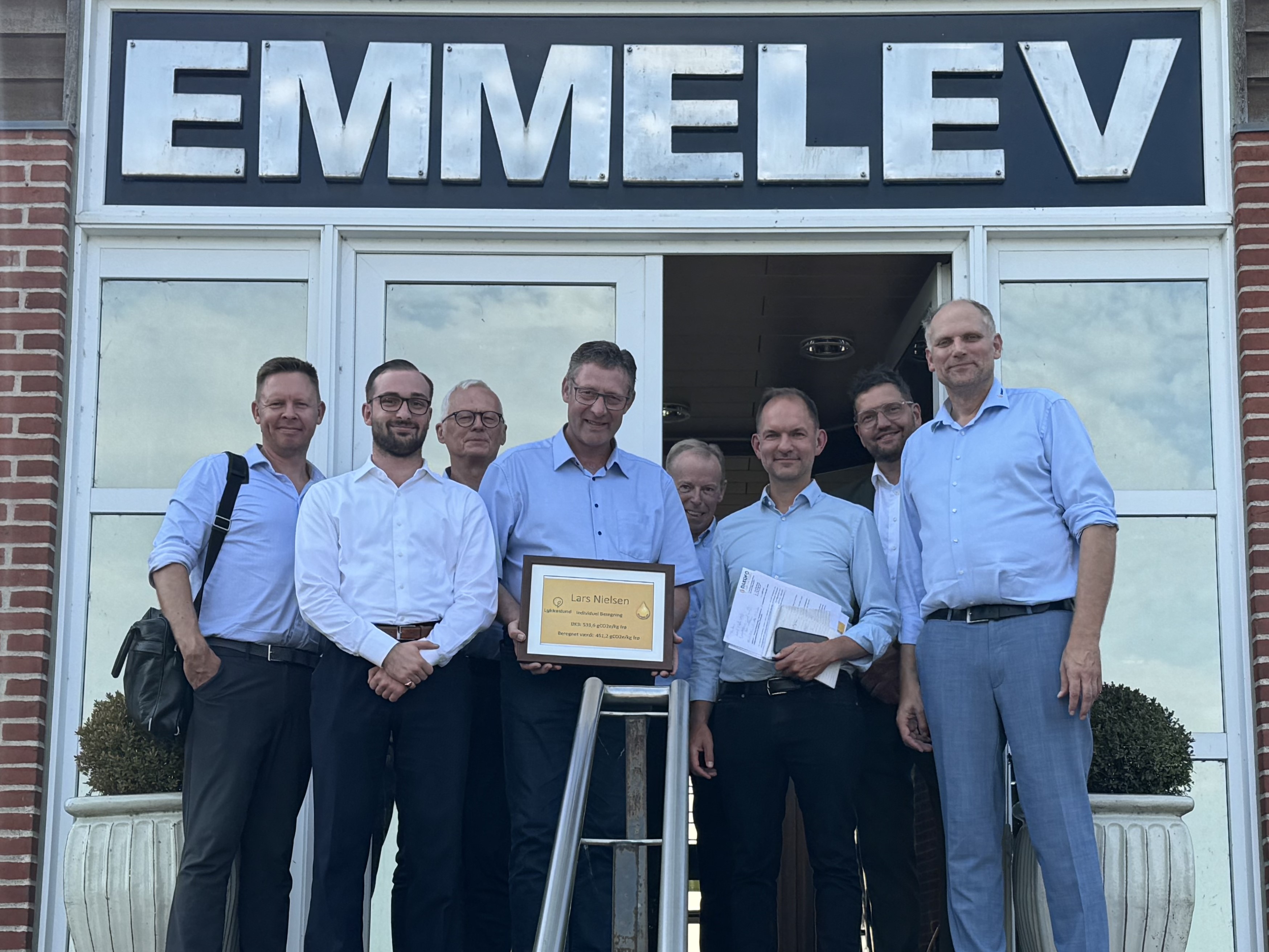Energifabriken.se tests Emmelev products
Sustainable Swedish Agriculture and RME Fuel Testing
Swedish agriculture is today considered one of the most sustainable in the world, but new challenges continually arise. As we face the need to feed an increasing population, we must also work to reduce our impact on the climate. This is a difficult task, but it is achievable. RME (Rapeseed Methyl Ester) is already widely used as fuel, including in the transport sector. RME is a fossil-free diesel alternative that can be mixed with most diesel fuels. Unlike HVO (Hydrotreated Vegetable Oil), another fossil-free fuel, RME is rarely used at 100 percent in tractors. Lantmännen Maskin, together with Energifabriken, conducted a test of RME as fuel in agricultural tractors.
Background
The quickest route forward involves using fossil-free fuels that can operate in existing engines without the need for modifications or investments in new technology. Currently, there are two such alternatives: HVO (Hydrated Vegetable Oil) and RME (Rapeseed Methyl Ester). Economic viability is crucial since profitability is a key driver and a prerequisite for the transition. HVO is already well-established, and manufacturers like Valtra approve its use in their tractors. However, two factors limit HVO’s potential to completely replace diesel as tractor fuel: the insufficient availability of pure HVO and the high additional costs, partly due to tax relief for diesel in agriculture.
RME, a fossil-free diesel alternative, can also be used on a large scale, including in the transport sector. However, unlike HVO, 100% RME is rarely used in tractors. This is mainly due to the limited experience and the lack of type-approval for RME by tractor manufacturers, which restricts its usage. Nevertheless, RME is cheaper than diesel, making it an economically interesting alternative, even though it requires higher consumption. RME’s non-toxic nature also reduces risks and makes storage and handling easier.
Implementation
Two new Valtra tractors were used in the test during the 2020 crop season: a Valtra N154e Versu and a Valtra T174e Direct. These tractors, both EcoPower models, were brand new at the start of the test, and no modifications or adjustments were made. EcoPower models can operate at lower speeds in practical use, saving fuel, reducing noise, and minimizing wear and tear. The test aimed to investigate whether the lower working speed would affect the difference in fuel consumption between diesel and RME.
During the season, the tractors were used for approximately 550 hours each. The Valtra T174e was tested on three different farms in Östergötland, while the Valtra N154e was used on a farm between Uppsala and Enköping. Both tractors were employed in daily operations throughout the crop season.
Results
• Driving Experience: The drivers of the two tractors did not notice any abnormalities in how the tractors performed or operated. Feedback indicated that it was not possible to distinguish that they were running on 100% RME.
• Start Characteristics/Cold Start: The test was conducted during the warm season, so cold starts were not a challenge. Energifabriken’s previous experience with 100% RME in other machines showed that some equipment might react slightly during startup, even in warm conditions, but this was not the case with these tractors. The 4-cylinder model, Valtra N154e, will continue to be tested during the winter to assess cold start performance.
• Odor: No change in exhaust odor was detected during the test period. In older engines (before 2009/2010), using RME can produce a “fried smell” in the exhaust, but this was not observed in this test.
• Smoke: No abnormal smoke was observed during the test.
• Fuel Filter: The tractors retained their original filters throughout the test. Normally, fuel filters need to be changed after one to two months of RME use due to RME dissolving old deposits from fossil diesel, which increases the load on the filters. Since these tractors were brand new, no fossil deposits were present.
• Oil Test: Oil analysis was performed twice, first after about 200 hours and then around 400-500 hours of operation. All analyses showed normal values, with no fuel dilution in the oil.
• Power: RME operation resulted in 7.5–9.5% lower maximum power compared to diesel, which is expected due to RME’s lower energy content per liter. However, the drivers did not notice this power reduction since they had not driven the tractors on diesel for comparison.
•Fuel Consumption: RME operation increased fuel consumption by 4–8% compared to diesel. This result was anticipated and might be due to the oxygen content in RME, which could make combustion more efficient.
• AdBlue: NOx emissions are higher during RME operation than diesel, leading to increased AdBlue consumption as the SCR system compensates for this. While specific increases in AdBlue usage could not be determined due to varying measurements, the trend of increased consumption during RME operation was confirmed. The NOx sensor values showed that the SCR system effectively managed NOx emissions regardless of the fuel used.
Conclusion
The test demonstrated that RME is a viable and sustainable alternative to diesel in agricultural tractors, with manageable differences in performance and fuel consumption. With proper adjustments and continued research, RME has the potential to play a significant role in driving Swedish agriculture towards a fossil-free future.





